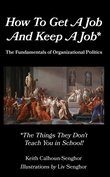
by Rabih Alameddine ‧ RELEASE DATE: Oct. 4, 2016
A feverish portrait of a mind in crisis, echoed in some overly fragmented storytelling.
A poet reckons with emotional stability after his lover’s death, with a few cameos from the spiritual world.
Jacob, like many characters in Alameddine’s oeuvre (An Unnecessary Woman, 2014, etc.), is highly literate, Middle Eastern, gay, and tormented: as the story opens, he's checking himself into a San Francisco psychiatric clinic because he's “having hallucinations, hearing Satan’s voice again.” News of another drone strike in his mother’s native Yemen hasn’t helped his sanity, but his central despair is the inability to shake the loss of his friends and partner during the height of the AIDS crisis. The novel’s fractured narrative captures the variety of coping mechanisms Jacob has tried: he recalls visits to S&M dungeons, delivers irreverent and satirical rants about politics and culture (“if I hear one more stanza eulogizing the scent of orange blossoms in Palestine, I will buy a gun, I swear”), and recalls his peripatetic childhood separated from his parents. Alameddine adds a mystical layer to these memories in sections where Satan (presumably a projection of Jacob’s anxieties) holds court with Death and various saints to prod Jacob to continue his self-loathing. As in An Unnecessary Woman, Alameddine is excellent at weaving literary references into his storytelling, and his set pieces have a sardonic cast that captures Jacob’s struggle to make sense of a world overflowing with HIV and innocent war victims; one digression is an extended boy-meets-drone fable. That said, the novel’s continuous shifts into different rhetorical gears risk making the novel feel almost centerless, or at least distant from the core story of Jacob’s stint in the clinic. Nobody could reasonably recommend that Alameddine restrict his limber imagination, but his swoops from dour to catty to fablelike to earthbound can be jarring.
A feverish portrait of a mind in crisis, echoed in some overly fragmented storytelling.Pub Date: Oct. 4, 2016
ISBN: 978-0-8021-2576-7
Page Count: 320
Publisher: Atlantic Monthly
Review Posted Online: July 4, 2016
Kirkus Reviews Issue: July 15, 2016
Share your opinion of this book
More by Rabih Alameddine
BOOK REVIEW
BOOK REVIEW
BOOK REVIEW

by Donna Tartt ‧ RELEASE DATE: Sept. 16, 1992
The Brat Pack meets The Bacchae in this precious, way-too-long, and utterly unsuspenseful town-and-gown murder tale. A bunch of ever-so-mandarin college kids in a small Vermont school are the eager epigones of an aloof classics professor, and in their exclusivity and snobbishness and eagerness to please their teacher, they are moved to try to enact Dionysian frenzies in the woods. During the only one that actually comes off, a local farmer happens upon them—and they kill him. But the death isn't ruled a murder—and might never have been if one of the gang—a cadging sybarite named Bunny Corcoran—hadn't shown signs of cracking under the secret's weight. And so he too is dispatched. The narrator, a blank-slate Californian named Richard Pepen chronicles the coverup. But if you're thinking remorse-drama, conscience masque, or even semi-trashy who'll-break-first? page-turner, forget it: This is a straight gee-whiz, first-to-have-ever-noticed college novel—"Hampden College, as a body, was always strangely prone to hysteria. Whether from isolation, malice, or simple boredom, people there were far more credulous and excitable than educated people are generally thought to be, and this hermetic, overheated atmosphere made it a thriving black petri dish of melodrama and distortion." First-novelist Tartt goes muzzy when she has to describe human confrontations (the murder, or sex, or even the ping-ponging of fear), and is much more comfortable in transcribing aimless dorm-room paranoia or the TV shows that the malefactors anesthetize themselves with as fate ticks down. By telegraphing the murders, Tartt wants us to be continually horrified at these kids—while inviting us to semi-enjoy their manneristic fetishes and refined tastes. This ersatz-Fitzgerald mix of moralizing and mirror-looking (Jay McInerney shook and poured the shaker first) is very 80's—and in Tartt's strenuous version already seems dated, formulaic. Les Nerds du Mal—and about as deep (if not nearly as involving) as a TV movie.
Pub Date: Sept. 16, 1992
ISBN: 1400031702
Page Count: 592
Publisher: Knopf
Review Posted Online: May 19, 2010
Kirkus Reviews Issue: July 1, 1992
Share your opinion of this book
More by Donna Tartt
BOOK REVIEW
by Donna Tartt
BOOK REVIEW
by Donna Tartt
More About This Book
SEEN & HEARD
SEEN & HEARD
SEEN & HEARD

by Sally Rooney ‧ RELEASE DATE: April 16, 2019
Absolutely enthralling. Read it.
Awards & Accolades
Likes

20
Our Verdict

GET IT
Kirkus Reviews'
Best Books Of 2019
New York Times Bestseller
IndieBound Bestseller
A young Irish couple gets together, splits up, gets together, splits up—sorry, can't tell you how it ends!
Irish writer Rooney has made a trans-Atlantic splash since publishing her first novel, Conversations With Friends, in 2017. Her second has already won the Costa Novel Award, among other honors, since it was published in Ireland and Britain last year. In outline it's a simple story, but Rooney tells it with bravura intelligence, wit, and delicacy. Connell Waldron and Marianne Sheridan are classmates in the small Irish town of Carricklea, where his mother works for her family as a cleaner. It's 2011, after the financial crisis, which hovers around the edges of the book like a ghost. Connell is popular in school, good at soccer, and nice; Marianne is strange and friendless. They're the smartest kids in their class, and they forge an intimacy when Connell picks his mother up from Marianne's house. Soon they're having sex, but Connell doesn't want anyone to know and Marianne doesn't mind; either she really doesn't care, or it's all she thinks she deserves. Or both. Though one time when she's forced into a social situation with some of their classmates, she briefly fantasizes about what would happen if she revealed their connection: "How much terrifying and bewildering status would accrue to her in this one moment, how destabilising it would be, how destructive." When they both move to Dublin for Trinity College, their positions are swapped: Marianne now seems electric and in-demand while Connell feels adrift in this unfamiliar environment. Rooney's genius lies in her ability to track her characters' subtle shifts in power, both within themselves and in relation to each other, and the ways they do and don't know each other; they both feel most like themselves when they're together, but they still have disastrous failures of communication. "Sorry about last night," Marianne says to Connell in February 2012. Then Rooney elaborates: "She tries to pronounce this in a way that communicates several things: apology, painful embarrassment, some additional pained embarrassment that serves to ironise and dilute the painful kind, a sense that she knows she will be forgiven or is already, a desire not to 'make a big deal.' " Then: "Forget about it, he says." Rooney precisely articulates everything that's going on below the surface; there's humor and insight here as well as the pleasure of getting to know two prickly, complicated people as they try to figure out who they are and who they want to become.
Absolutely enthralling. Read it.Pub Date: April 16, 2019
ISBN: 978-1-984-82217-8
Page Count: 288
Publisher: Hogarth
Review Posted Online: Feb. 17, 2019
Kirkus Reviews Issue: March 1, 2019
Share your opinion of this book
More by Sally Rooney
BOOK REVIEW
by Sally Rooney
BOOK REVIEW
by Sally Rooney
BOOK REVIEW
by Sally Rooney
More About This Book
BOOK TO SCREEN
© Copyright 2025 Kirkus Media LLC. All Rights Reserved.
Hey there, book lover.
We’re glad you found a book that interests you!
We can’t wait for you to join Kirkus!
It’s free and takes less than 10 seconds!
Already have an account? Log in.
OR
Trouble signing in? Retrieve credentials.
Welcome Back!
OR
Trouble signing in? Retrieve credentials.
Don’t fret. We’ll find you.





